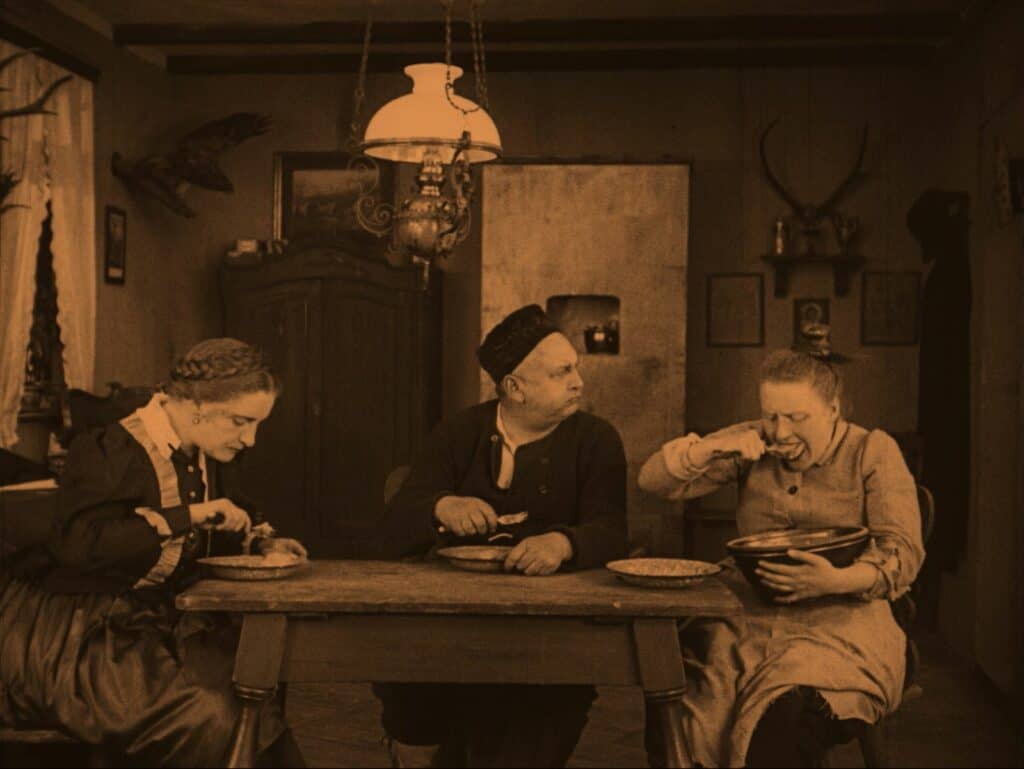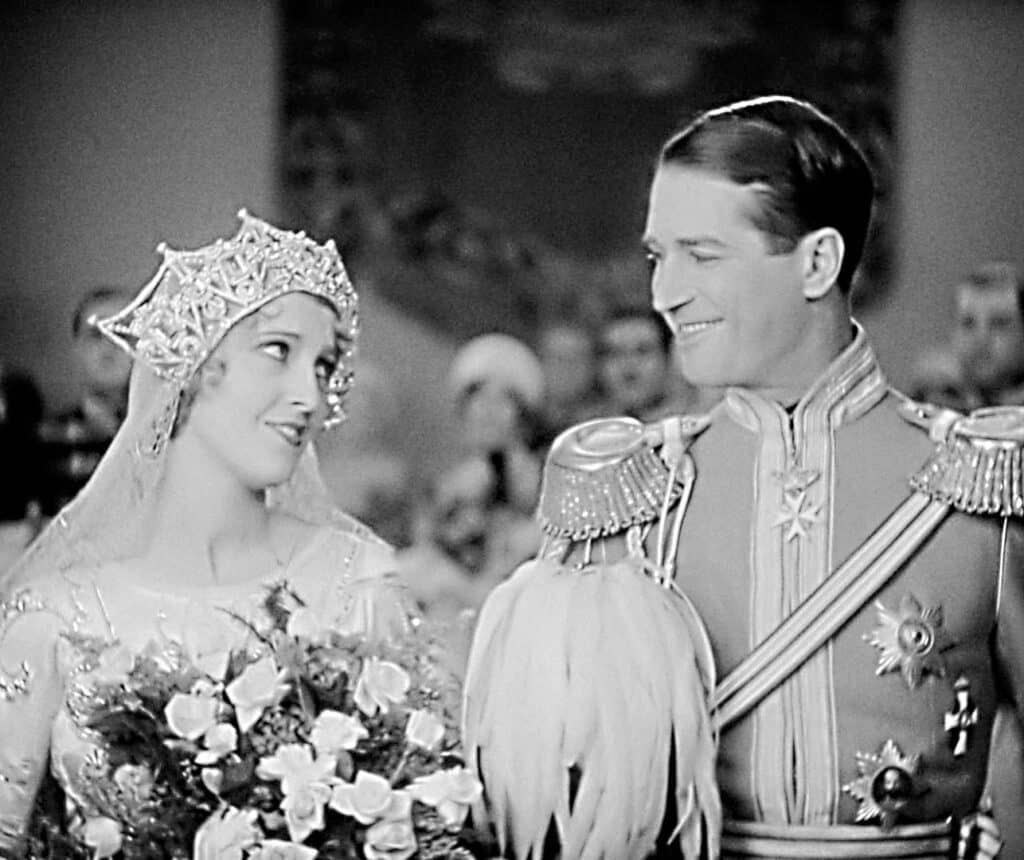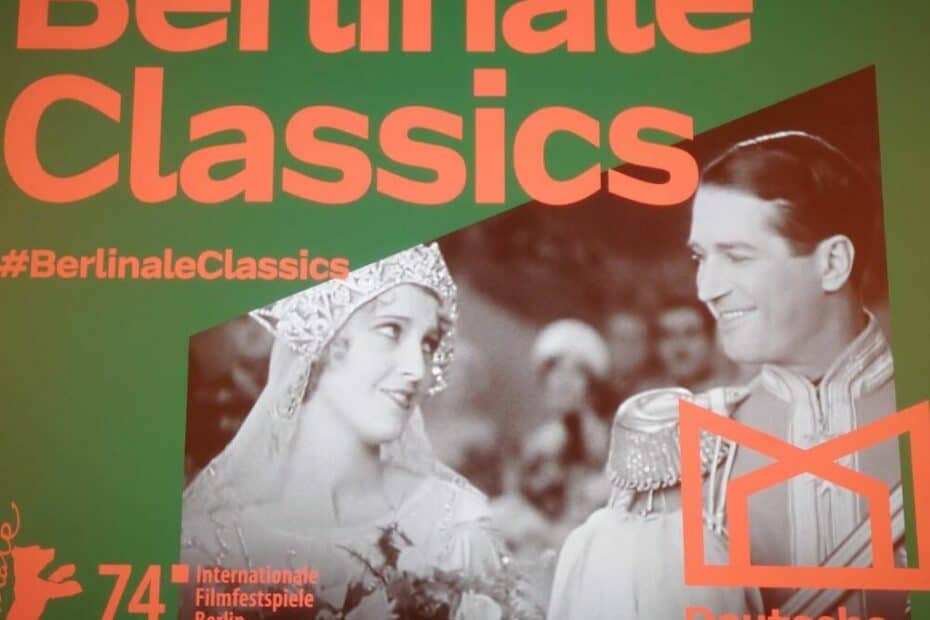This year’s Berlinale Classics screened two of Ernst Lubitsch’s films— the silent Kohlhiesels Töchter from 1920 and The Love Parade, released nine years later. The titular daughters of the silent film are the beautiful and friendly Grethel and Liesel, who is more of a shrew. Farmer Peter Xaver (Emil Jannings) is in love with Gretel, but innkeeper Kohlhiesel won’t give her in marriage until Liesel has tied the knot. However, it´s difficult to find anyone willing to marry the feisty Liesel, so Xaver’s friend Zeppl comes up with a plan: Xaver should marry Liesel temporarily. It’s actually a trick by Zeppl, who is in love with Grethel, to get her for himself.
The film is based on the eponymous play by Hanns Kräly, but there is more than a tinge of Shakespeare here. Lubitsch even referred to the work as “The Taming of the Shrew relocated to the Bavarian mountains”. It was made during a period when Lubitsch piled masterpieces upon each other, such as Die Austernprinzessin (1919), Die Puppe (1919), and Die Bergkatze (1921) with Pola Negri. A memorable quote from the first one is when several men beg the titular princess to whip them. She happily obliges. When her father notices this, he runs up to her, pulls the whip out of her hands and says, “Don’t spoil them”.

Women in Lubitsch’s films are generally resourceful. In Kohlhiesels Töchter, It is Liesel’s task to throw out men who don’t behave well—something she does with ease and not without a fair amount of pleasure. When Xaver asks Kohlhiesel to marry Liesel, he answers that he won’t pay for any medical expenses should he get injured. The whole affair is a playful variation of the battle of the sexes where masculine and feminine traits may not always be clear-cut. Playful is the operative word here since, compared to recent works that attempt to approach these topics, it’s mischievous rather than mean-spirited. One example of this tongue-in-cheek nature is that both sisters are played by the same actress, Henny Porten.
The whole thing is also inventive cinematically, if not on the same level as Die Puppe or the expressionist parody Die Bergkatze. It’s a reminder of how subversive themes can be dealt with in a way that engages the audience rather than enrages them. The digitally restored print was accompanied by members of the Berliner Philharmonic performing Diego Ramon Rodriguez’s new score.
Lubitsch leads The Love Parade
The Love Parade was the director’s first talkie and musical following eleven silent features in the US. It was also the first of four films Maurice Chevalier and Jeanette MacDonald made together and the latter’s debut feature. Count Alfred (Chevalier) is the military attaché at the Sylvanian embassy in Paris. After countless affairs, he is called back to his home country. In Sylvania, Queen Louise (MacDonald) is tired of everyone commenting on her single status. When she meets the count, she falls for him, and they get married during a lavish ceremony. However, the marriage is not what he hoped for. As a Prince Consort, he doesn’t have any power, either politically or at home, which makes him feel emasculated.
The opulent setting makes it abundantly clear that this couple does not have to worry about finances. This particular conflict between the sexes is about their respective roles. Already during the wedding ceremony, the priest asks Alfred if he is willing to be an obedient and docile husband. He hesitates for some time but answers yes after a glance from Louise. A guest from Afghanistan mutters that a man shouldn’t stand being a wife and wishes for them to have an unhappy relationship. This wish seems to come true when Alfred feels he is being reduced to a trophy husband. This leads him to rebel against his appointed role, for instance, by skipping events.

Meanwhile, their respective servants, Jaques (Lupino Lane) and Lulu (Lilian Roth), are in a relationship with much less stress. A fact that they sing about in the song Let’s Be Common. Lane’s stunning acrobatics is one of the film’s highlights. Since The Love Parade is a pre-code film, the dialogue and the song lyrics are quite frank. The prime example is Maurice Chevalier singing to the queen’s dog that Nobody’s using it now, where the “it” changes meaning in the last verse. Even though emasculation is a central theme, we don’t have to endure simplistic nonsense like I’m just Ken. Without stressing the resemblance, the take on the topic is similar to the one in Cat Call.
The actors benefit from the pre-code, as well. If anyone remembers MacDonald from her films with Nelson Eddy, it might come as a huge surprise that she was much funnier and sexier in her early films. Her on-screen chemistry with Chevalier is perfect, too. The Love Parade is a minor Lubitsch film, and the following films would become tighter. Still, it’s remarkable to see what is accomplished both with the image and sound in this early musical. There are several inventive shots and edits, and a minor Lubitsch film remains a major achievement. The sharp dialogue combined with the elegance and finesse typical of the director makes the film a real treat.



